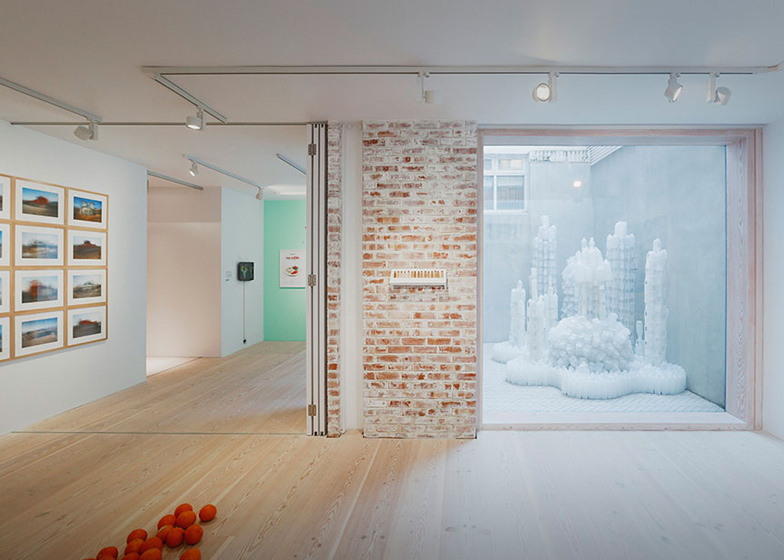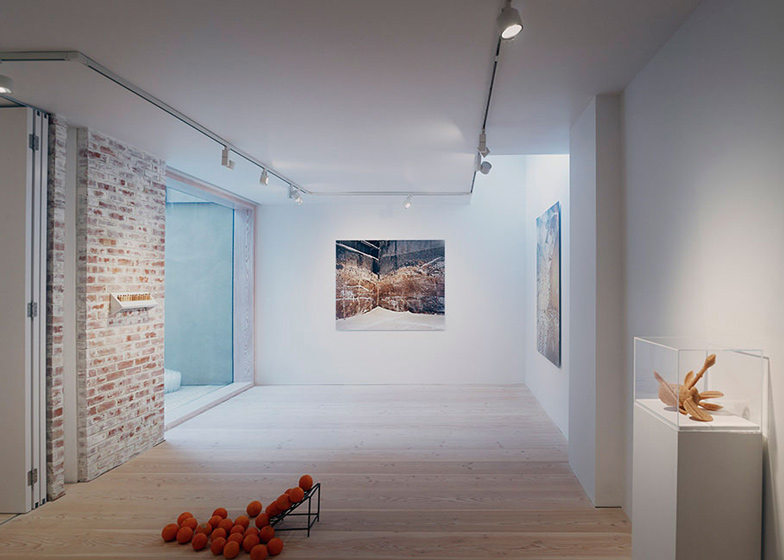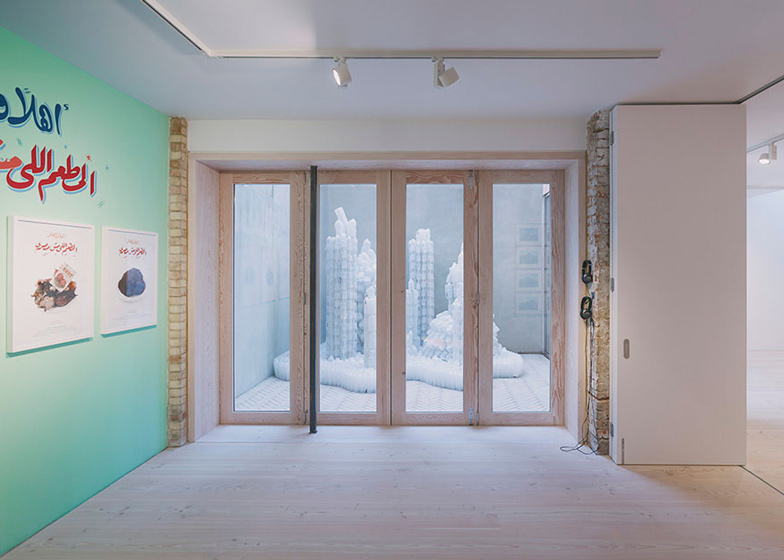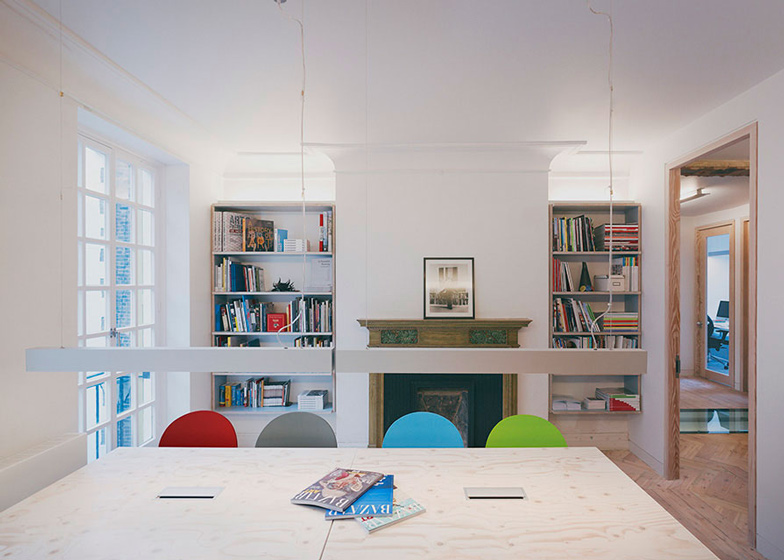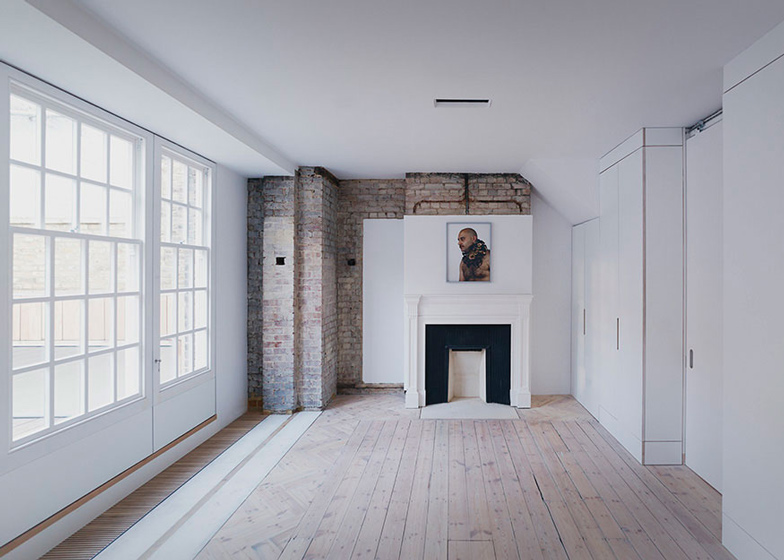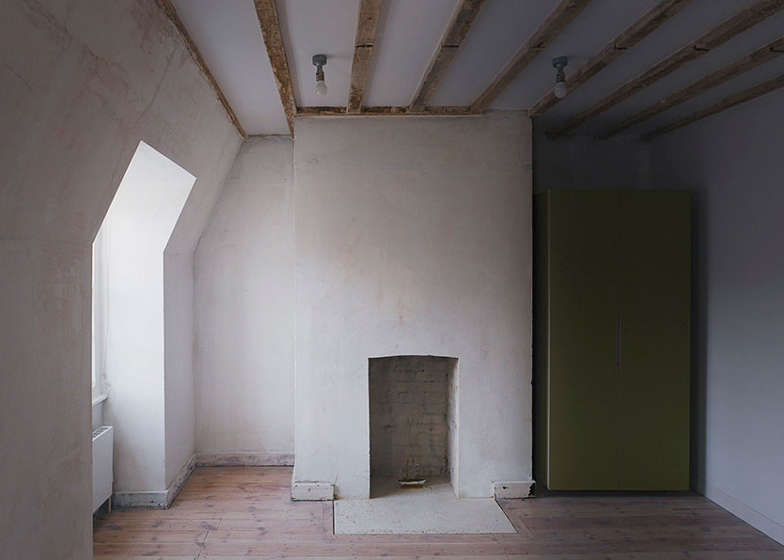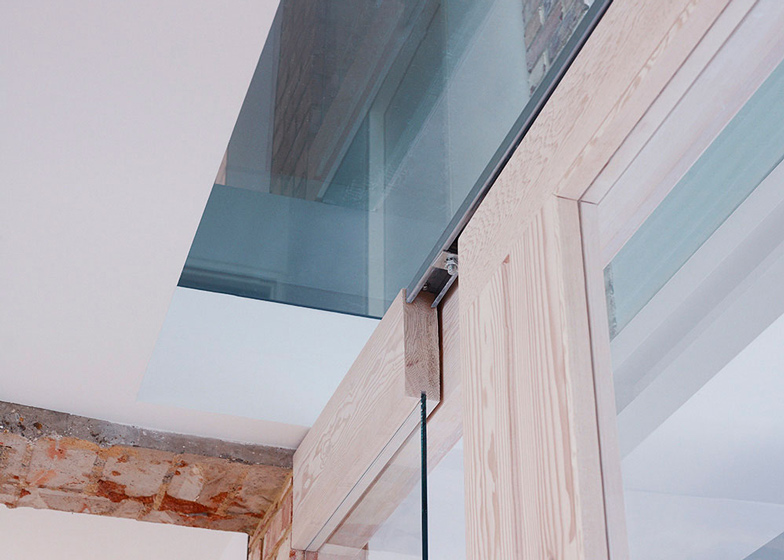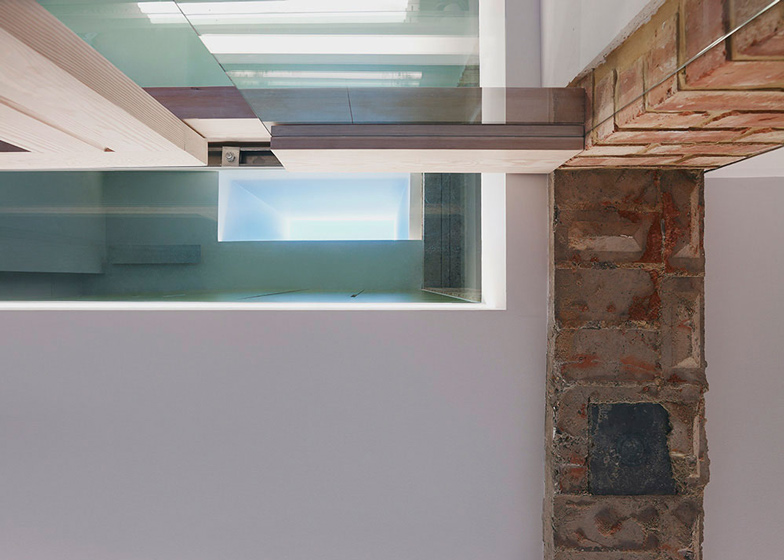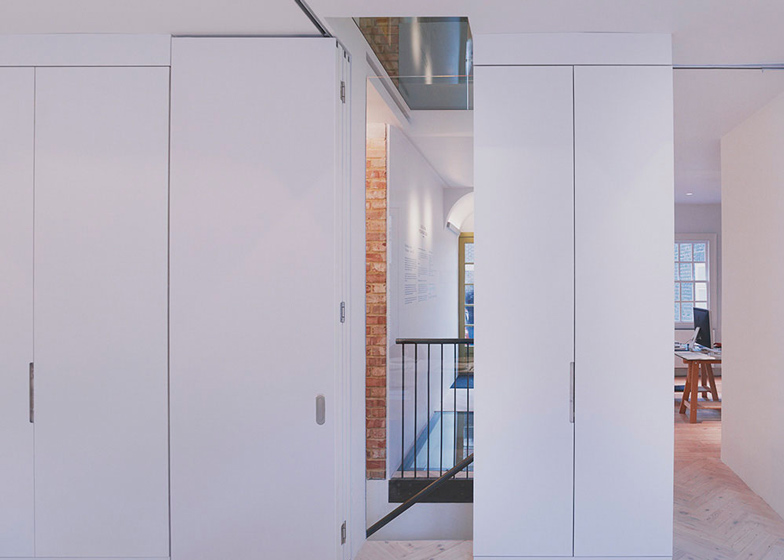Glazed panels create views between the floors of these two Edwardian townhouses in London that have been renovated by local architects Studio Octopi to accommodate resident artists (+ slideshow).
By connecting two neighbouring properties, Studio Octopi has doubled the residency capacity of non-profit arts organisation the Delfina Foundation from four to eight, making it London's largest artist residency provider.
The architects responded to a competition brief aimed at retaining the residential character of the townhouses by focusing on the central role of the hearth. They preserved existing fireplaces on the ground floor, as well as recesses and hearth stones in the artists' private areas on the top two storeys.
Other original details, including brickwork and concrete lintels that previously surrounded doorways, have been left in their raw state to retain a sense of the buildings' history.
"Adopting the role of architects-cum-archaeologists, Studio Octopi have created an environment which is unassuming, layered and contextual, while peeling back the layers of ornamentation and finish to expose the period craftsmanship of the buildings," said the Delfina Foundation.
Throughout the interior, glazed panels in the floors and walls create a visual connection between public and private spaces, and allow light to filter through to rooms in the centre of the building.
Separate entrances for the public and the artists lead to a reception, dining room and kitchen on the ground floor of the five-storey property.
The basement houses a gallery and workshop space, while offices and a library are located on the first floor and the artists' residences are contained on the top two floors.
Many of the spaces are updated with white walls, pale wood joinery and practical fitted cabinetry that offer a contemporary counterpoint to the grand facade and authentic detailing.
Splashes of bright colour provided by the kitchen cabinets and bathroom floor enhance the modern look of these spaces.
A small terrace located at the basement level provides an outdoor exhibition space, while a terrace on the ground floor can be accessed from the dining room.
"The scheme aims to act as a palimpsest, to retain the integrity and character of the existing buildings while simultaneously creating a series of spaces for residents, staff and visitors to use and enjoy," said architects Chris Romer-Lee and James Lowe.
Studio Octopi designed the concept at the competition stage with Egyptian office Shahira Fahmy Architects, and subsequently oversaw the £1.4 million development and construction process.
Photography is by Julien Lanoo.
Here's a press release about the project from Delfina Foundation:
Delfina Foundation opens its newly expanded building
The £1.4m redevelopment has doubled the residency capacity, increasing the number of residents at one time from four to eight, as well as creating 1,650 square feet of additional exhibition and event space. Currently located at 29 Catherine Place in an Edwardian townhouse in Victoria, the Foundation has expanded into the adjacent building, giving it a combined area total of 4,564 square feet.
Adhering to one of the core concepts of the Delfina Foundation’s history as a provider of 'homes' for artists, the architects have retained the domesticity of the two houses, exploring the significance of the hearth in a home. Across cultures and throughout history, the hearth has been an integral part of a household, becoming synonymous with notions of domesticity, and place making. Fireplaces are kept in their entirety on the lower floors, and the recesses and hearth stones are retained in the artists’ private spaces.
The designs also set out to maintain the juxtaposition of public and private spaces. The introduction of glazed panels in the floors and walls allow for their integration. Diagonal views across the buildings and through the floors expose the Foundation's ecosystem at work, as well as opening up the two buildings and bringing in more light throughout the space. With flexible artist workspaces throughout, the five-storey property boasts an expansive gallery/workshop space on the lower ground floor; reception, dining area and kitchen on the ground level; offices and library on the first, whilst the residents' quarters occupy the two top floors.
Adopting the role of architect cum archaeologists, Studio Octopi have created an environment which is unassuming, layered and contextual, while peeling back the layers of ornamentation and finish to expose the period craftsmanship of the buildings. New insertions are made with a light and considered touch, while detailing is discrete and at times whimsical.
Brickwork to the reveals of the new openings is left exposed and overhead concrete lintels retained in their natural state. By leaving materials in their raw state, a reminder of the building’s beginnings is introduced.
A sense of permanence is imbued in the two townhouses, linking the present with the past and consequently looking ahead into the building's exciting future.

